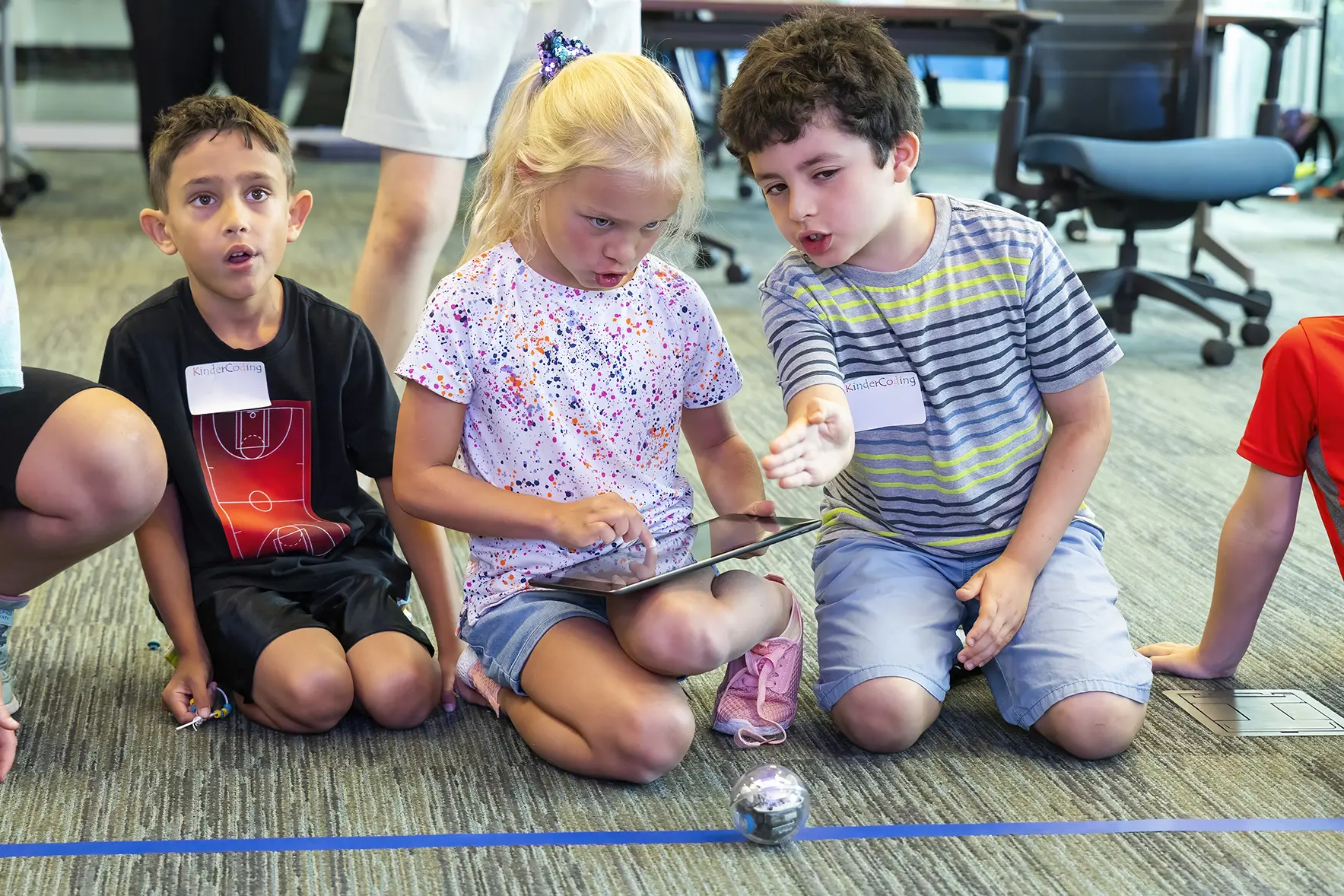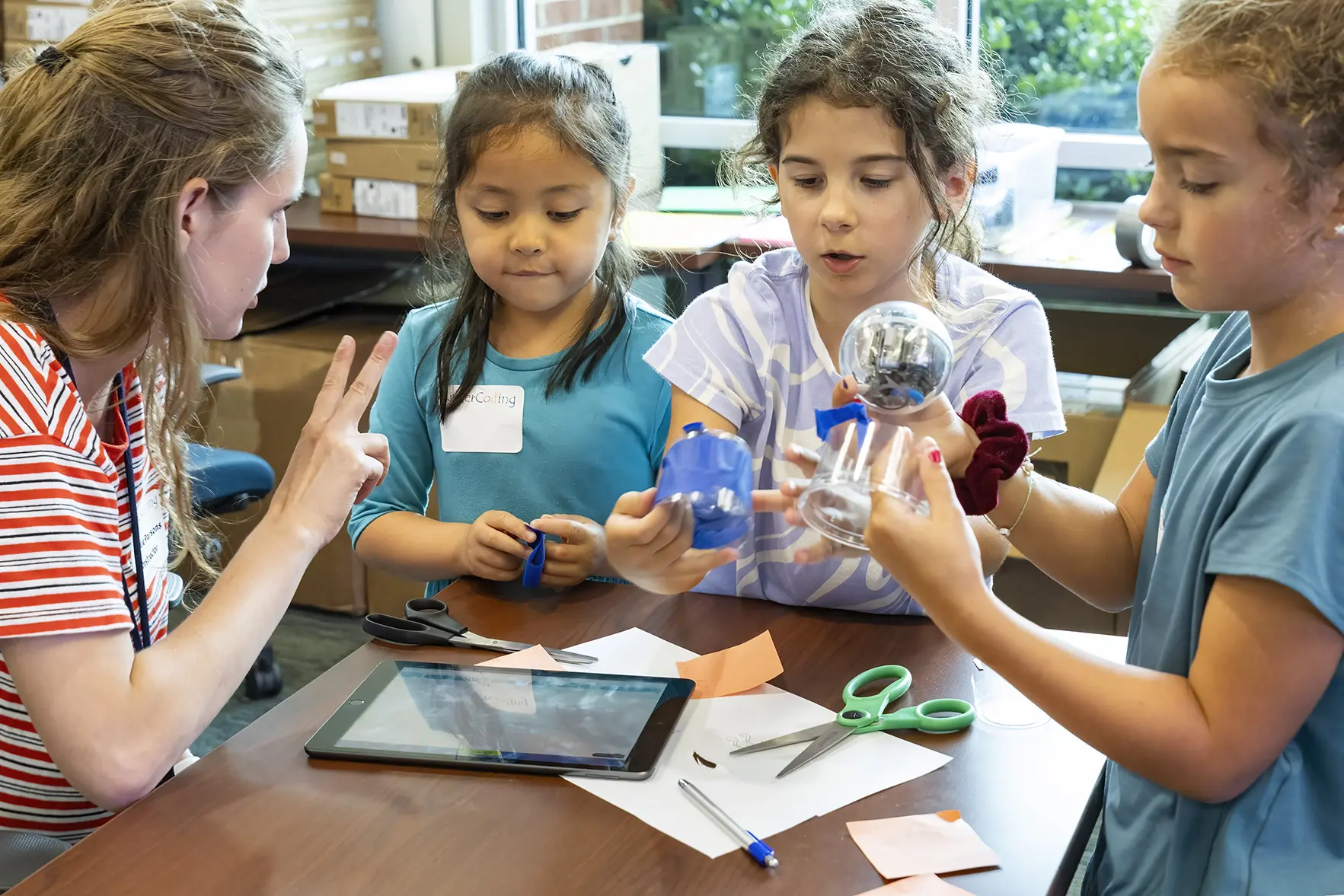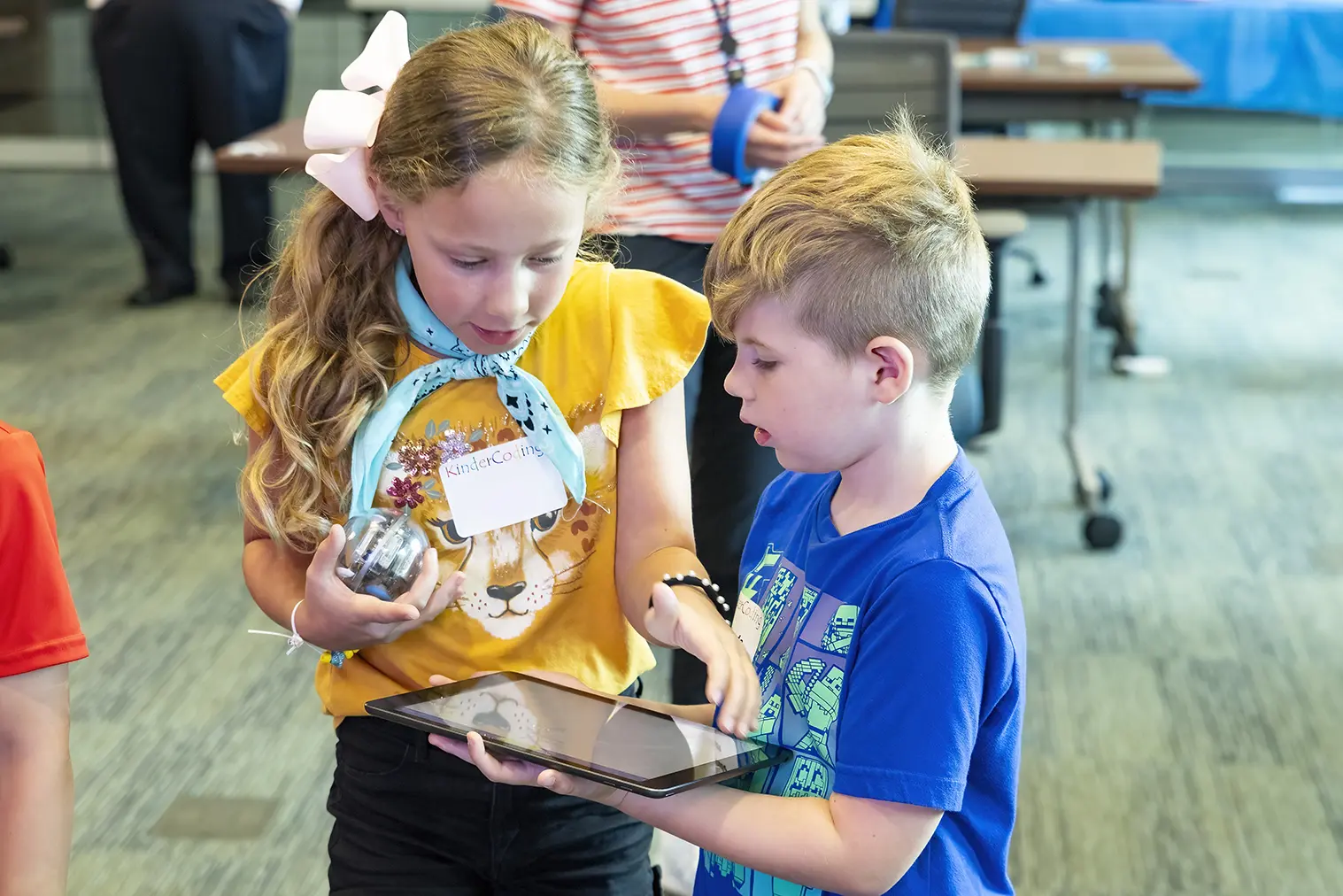Building the basics: KinderCoding teaches young learners how to code and problem-solve

What do you think of when you imagine coding? Is it long lines of text on a computer screen?
Coding has come a long way since it looked like lines of text filled with punctuation and commands. At KinderCoding, a STEM summer class hosted by ORISE, rising first through third graders got an introduction to coding in a way that was fun and accessible with Sphero Bolt robots. Sphero Bolt is an educational aid to help students learn about coding. In KinderCoding, students used iPads to program commands, coaching the Spheros around the classroom.
The class’s instructor, Natalie Parsons, uses the class not just to get young students comfortable with coding, but also to teach them to solve problems and gain confidence in skills they’ll use for the rest of their lives.
“The whole purpose of coding is trial and error,” Parsons explained. “With all coding languages, you say, ‘here’s what I’m trying to do,’ and they just trial and error through it. A lot of that keeps the kids engaged because they’re picking their own tasks, they’re trying to get through challenges and they’re trying to problem solve.”

The Sphero Bolts offer immediate and visual feedback on whether the students have made a mistake, offering them opportunities for growth and task-based learning.
“It’s a good place to say ‘ok, I want to make a circle. And I drew a line, but now my robot’s just spinning in one spot, and that’s not what I want it to do. So let me look at this and figure out what’s going on,’” Parsons continued. “I think the kids really enjoyed that part because it’s a lot of ‘I had an issue, let me get through that issue,’ and then you get the satisfaction of getting through it. Then when you get to another challenge, you can build on those skills going forward.”
Parsons explained that kindergarten through third grade is when children begin to ask for help rather than problem-solve and teaching them the basics of coding at this age can help them break down that mindset. When the students faced a problem, they were encouraged to approach it from another angle, then ask their peers before asking for help from an adult. “That way the student learns self-confidence, and they’re able to problem-solve with people their own age and with their own ability,” said Parsons.
Of course, besides gaining self-confidence and problem-solving skills, coding teaches children how the technology they’ll use for the rest of their lives works.

“This generation uses coding just like using their phone,” Parsons said. “They have coding everywhere. By using that skill, they’re able to use problem-solving skills, but also to take that and apply it to different technologies that they experience, even at this age. By sixth grade, their learning is completely integrated on computers. Even at five years old they can start coding and learning how a computer works.”
“Coding sounds really intimidating to a lot of people,” Parsons explained. “But kindergartners can do it! You can break coding down to very simple steps, and it builds. Same with math—you learn two plus two, and you learn how to draw a circle with a coding block. And it builds from there.”
Media Contacts
Pam Bonee
Director, Communications
Phone: 865.603.5142
pam.bonee@orau.org
Wendy West
Manager, Communications
Phone: 865.207.7953
wendy.west@orau.org
The Oak Ridge Institute for Science and Education (ORISE) is a U.S. Department of Energy (DOE) asset that is dedicated to enabling critical scientific, research, and health initiatives of the department and its laboratory system by providing world class expertise in STEM workforce development, scientific and technical reviews, and the evaluation of radiation exposure and environmental contamination.
ORISE is managed by ORAU, a 501(c)(3) nonprofit corporation and federal contractor, for DOE’s Office of Science. The single largest supporter of basic research in the physical sciences in the United States, the Office of Science is working to address some of the most pressing challenges of our time. For more information, please visit science.osti.gov.

